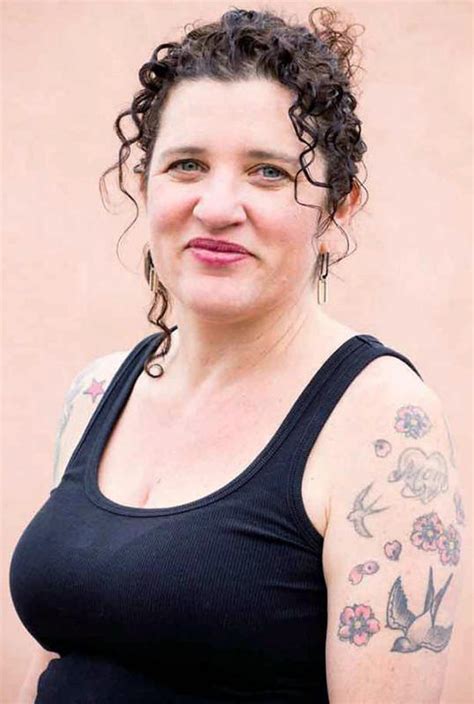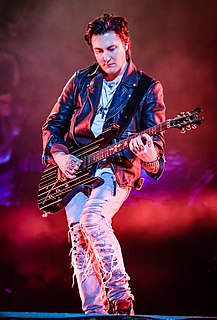A Quote by Rupi Kaur
I was always writing for myself. I wrote what I needed to write and hear - that's what makes it powerful.
Related Quotes
I used to write songs that mimicked other songs that I would hear as a kid, cos I was 12 years old when I was writing those, right. And you hear a radio so all I'd write about was [sings] "hey girl, look at you", you know what I mean. I think that even doing that made it easier for me to write non-personal songs because, from a kid, I never wrote personal songs, they were always like mimicking. And now I'm just trying to understand my writing and where it's coming from.
The secret to writing is just to write. Write every day. Never stop writing. Write on every surface you see; write on people on the street. When the cops come to arrest you, write on the cops. Write on the police car. Write on the judge. I'm in jail forever now, and the prison cell walls are completely covered with my writing, and I keep writing on the writing I wrote. That's my method.
I liked to write from the time I was about 12 or 13. I loved to read. And since I only spoke to my brother, I would write down my thoughts. And I think I wrote some of the worst poetry west of the Rockies. But by the time I was in my 20s, I found myself writing little essays and more poetry - writing at writing.
I always try to write a song, I never just want to write a record. Originally I was not writing songs for myself. ....And I can say this, most of the people who have recorded my songs are songwriters themselves. ... Even if I don't release it myself, somebody else might hear it and want to record it. When you write a song, it gives it that potential. When you write a song, a song has longevity. ... So I wanted to sing inspirational music, and that's exactly how I approached it-only the words have been changed to declare my relationship with God. Songwriting is my gift from God.
My philosophy on writing a song for myself is that I always, always, always want to write a song. I always want to write a song. I realize that as a record producer or a singer or whatever I might not, if I recorded on myself or someone else, the first time out I might not give it the right treatment, so that the world or many people will accept it and it'll be a public hit, or anything like that.
The secret of it all, is to write in the gush, the throb, the flood, of the moment – to put things down without deliberation – without worrying about their style – without waiting for a fit time or place. I always worked that way. I took the first scrap of paper, the first doorstep, the first desk, and wrote – wrote, wrote…By writing at the instant the very heartbeat of life is caught.
LATE will always be the most important song to me. I used to struggle to perform it live without getting upset but have performed it a lot now, which has really helped. Very often it makes people in the audience cry, and that means so much to me that they can relate to the emotions in the song. It was actually a really easy song to write, I wrote most of it in one day... it sort of flowed out of me. I was never good with dealing with emotion, so I think I kind of needed to write it!




































